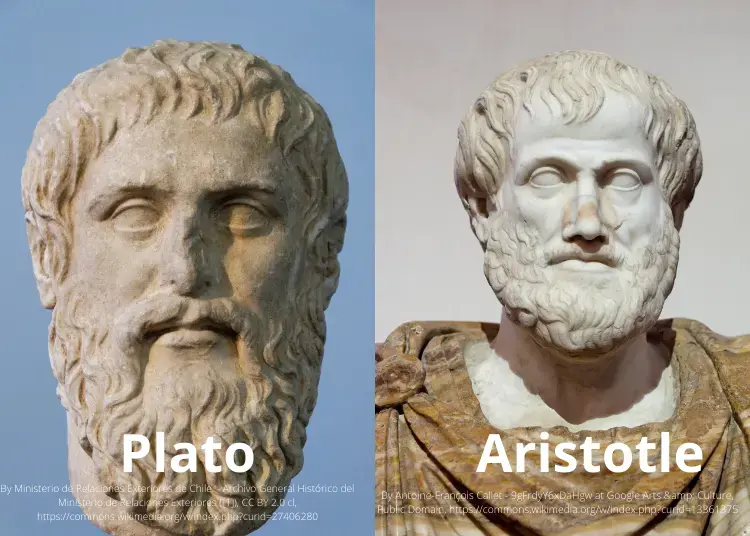The philosophy of ancient Greece had a profound and lasting impact on Western thought and continues to influence the modern world. Ancient Greek philosophy emerged in the 6th and 5th centuries BCE and was characterized by a quest for knowledge and a desire to understand the nature of reality. The ancient Greeks were known for their innovative and critical thinking, and their ideas had a significant impact on the development of Western philosophy, science, and culture.
One of the most important figures in ancient Greek philosophy was Socrates, who is considered the father of Western philosophy. Socrates believed in the power of reason and argument, and he developed the method of questioning and inquiry that became the foundation of Western philosophy. His student, Plato, was also a significant figure in ancient Greek philosophy, and he was known for his emphasis on the importance of knowledge and wisdom, as well as his belief in the existence of a world of Forms or Ideas.
Socrates believed that the only way to achieve a greater understanding of the world and one’s place in it was through questioning and examining one’s beliefs and assumptions. He is famous for his “Socratic method” of questioning, which involves asking a series of questions in order to arrive at a deeper understanding of a particular issue.
Socrates was known for his dedication to truth and his belief that ignorance was the root of all evil. He famously stated that “the only true wisdom is in knowing that you know nothing.” This belief in the importance of questioning and examining one’s beliefs was a fundamental shift from the traditional beliefs of ancient Greece, where myths and legends were accepted as truth.
Socrates’ ideas and method of inquiry had a profound impact on Western thought, and his legacy can be seen in the works of later philosophers such as Plato and Aristotle. He is often referred to as the “father of Western philosophy” because his ideas and method of inquiry laid the foundation for much of the philosophical inquiry that would follow in the centuries to come. Despite his significant contributions to Western thought, Socrates himself left no written works, and much of what is known about his philosophy comes from the writings of his students, particularly Plato.
Plato was one of the most prominent students of Socrates and he built upon many of Socrates’ ideas and teachings. Plato was known for his emphasis on the importance of knowledge and wisdom, and he believed that true knowledge and understanding could only be achieved through reason and philosophical inquiry. This emphasis on the importance of knowledge and wisdom was evident in his works, such as “The Republic,” where he explores the nature of justice, the ideal society, and the role of the philosopher in society.
One of Plato’s most famous ideas was his theory of Forms, which posits that there is an underlying reality behind the physical world, which is made up of perfect, unchanging Forms or Ideas. Plato believed that these Forms or Ideas were the only true reality, and that the physical world was merely a pale imitation of this underlying reality.
Plato’s relationship with Socrates is an important one in the history of Western philosophy. Socrates is considered the father of Western philosophy and his method of questioning and inquiry was a major influence on Plato. Plato was deeply influenced by Socrates and he used many of Socrates’ ideas and teachings as the foundation for his own philosophical ideas and works. Additionally, many of Socrates’ dialogues with his students, as recorded by Plato, have become some of the most famous and influential works of Western philosophy.
Another important figure in ancient Greek philosophy was Aristotle, who was a student of Plato and the teacher of Alexander the Great. Aristotle was a prolific writer and his works covered a wide range of topics, including ethics, politics, metaphysics, and biology. He believed in the importance of observation and empirical evidence and his ideas had a significant impact on the development of Western science.
The philosophy of ancient Greece also had a lasting impact on Western culture and thought. For example, the ideas of the ancient Greek philosophers continue to shape our understanding of politics, ethics, and the nature of reality. Additionally, the legacy of ancient Greek philosophy has also been influential in the development of Western art, literature, and architecture.
Aristotle’s philosophy was heavily influenced by his mentor Plato, but he also developed his own unique ideas and perspectives. Unlike Plato, who believed in the existence of a world of Forms or Ideas that transcended the physical world, Aristotle believed that reality was composed of individual, physical objects and that knowledge could be acquired through the observation and study of these objects.
Aristotle’s work in ethics and politics was also highly influential in the development of Western thought. In his Nichomachean Ethics, he argued that the highest good was happiness, which could be achieved through a life of virtuous action and contemplation. He also developed a theory of the “golden mean,” which held that virtue was the middle ground between excess and deficiency.
In politics, Aristotle believed that the best form of government was a constitutional monarchy, in which power was shared between the king and the people. He also believed in the importance of education and the development of moral character, and he saw the role of the state as being to help individuals achieve happiness and fulfillment.
The philosophy of ancient Greece played a critical role in shaping Western thought and continues to influence the modern world. The innovative and critical thinking of the ancient Greek philosophers paved the way for future generations to explore the nature of reality and the meaning of life, and their ideas continue to shape our understanding of the world today.

![]()






















GIPHY App Key not set. Please check settings